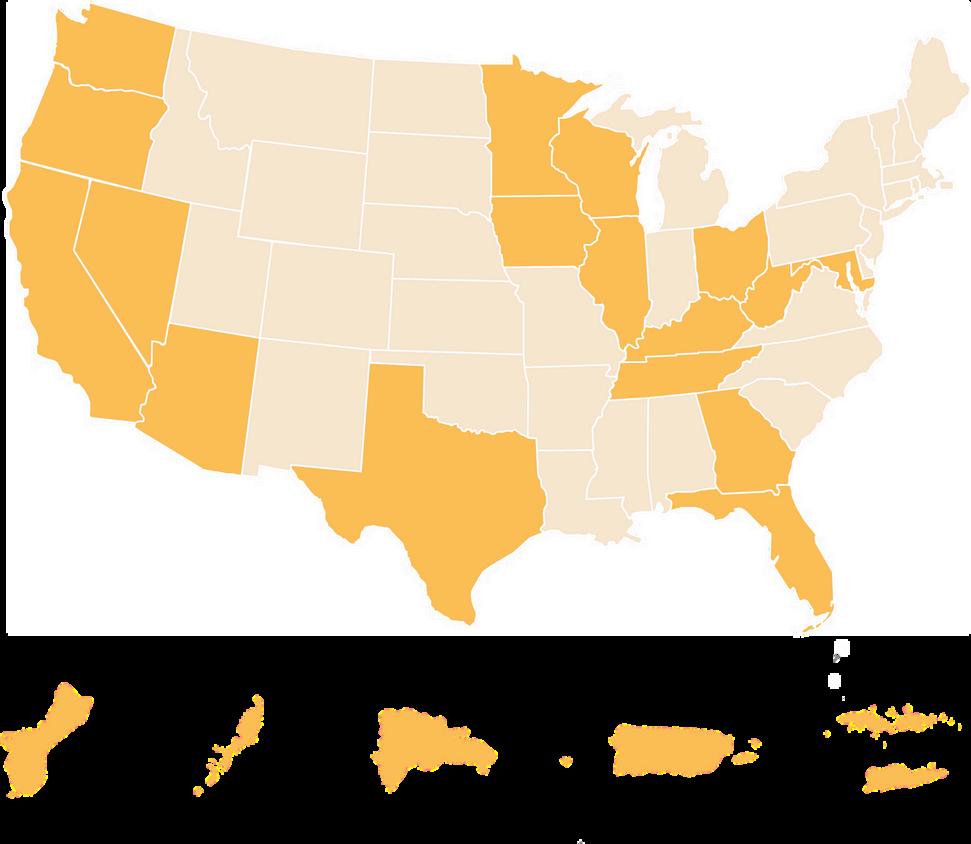

THE ORIGINS OF THE VILLAGE SOUTH & THE VILLAGE VI -





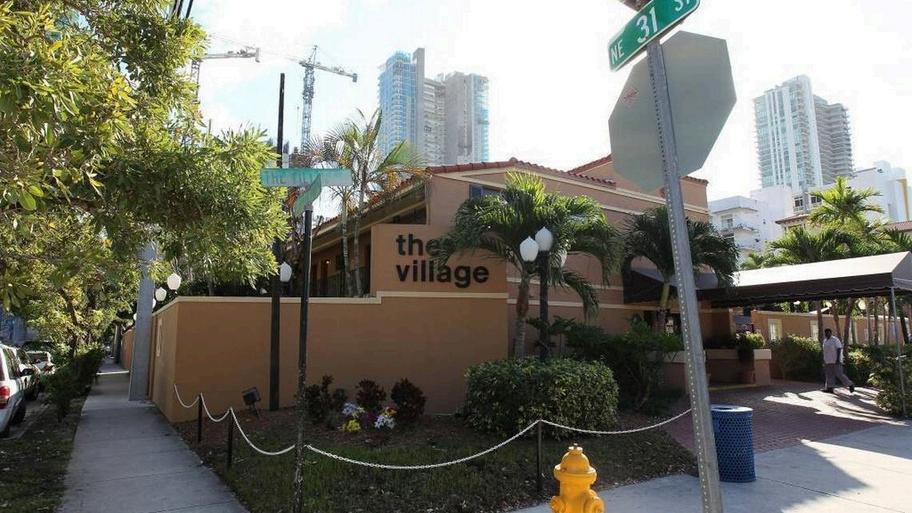
In the sultry embrace of the 1970s, Miami was a vibrant mosaic of cultural fusion where Florida’s sun-kissed shores met the rhythmic beats of Latin music and the pulsating energy of disco The decades prior had seen the population of the city grow upwards of 34%, or nearly 85,000 people.
Yet, amongst the culture and life that poured into the city daily, Miami grappled with what seemed like an unlimited arrival of drugs as well Drug kingpins like Willy Falcon and Sal Maguta were famously dubbed the “Cocaine Cowboys,” and their cartels ruled the city through a mixture of violence and an almost celebrity-like influence. Residents dealt with the perpetual risk of crime, running from their cars into buildings to avoid getting robbed or even caught in the crossfire of the constant battles as a result of the cartel’s presence Amongst the inherent danger, the population also found themselves or their loved ones wrestling within the throes of addiction. The need for a lifeline in a sea of uncertainty had never been more prevalent
Despite the size of the population, there was a real sense of connection between the residents of Miami “It was like the degrees of separation thing, where everyone knew each other through someone... you knew their cousin or they were your god-sister or something,” explained Denise Connor, Director of Evaluation & Quality, WestCare Foundation, and a Miamian, born and raised “There was always a connection and there was an early awareness that this was happening to all of us, together ” The camaraderie that the residents of Miami felt for each other served as the driving force behind their collective need to figure out how to help one another. They might have spoken different languages or lived in different neighborhoods, but this was their little slice of paradise and they needed to protect it
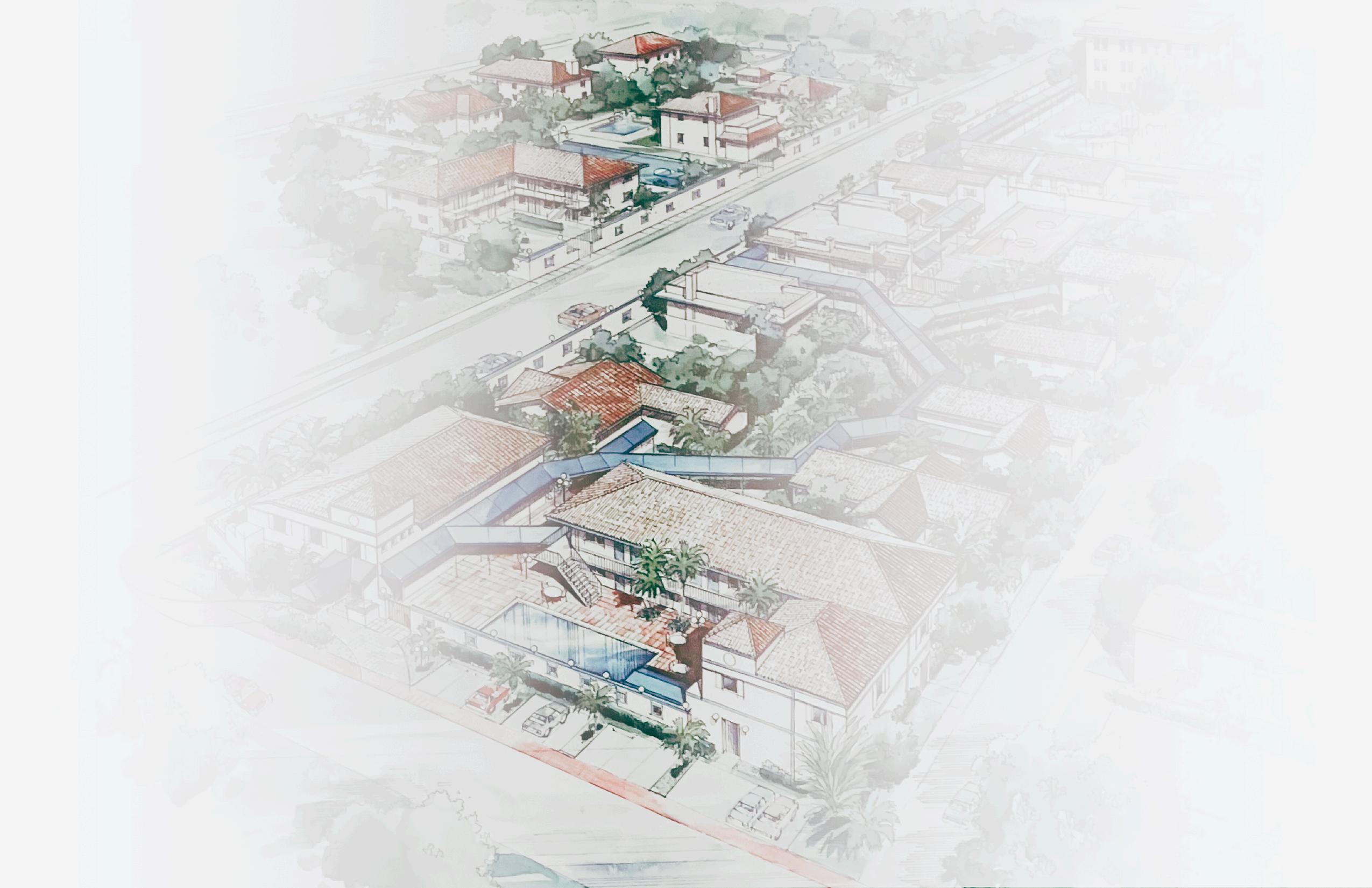
In times of crisis, leadership isn’t about waiting for a path to appear - it’s about forging one and a group of Miamians knew they had to do something for their brothers and sisters who were suffering the consequences first-hand of the influx of drugs into the city. Led by businessman and lawyer, Matthew Gissen, the group envisioned a place that could meet the growing need for a therapeutic community The group foresaw a place where individuals battling addiction could find solace, support, and a pathway to recovery With an urgent need and an incredible dream, they started fundraising to open up a treatment center with a few buckets at stoplights. With a little bit of elbow grease, a ton of determination, and additional funding from the State of Florida, the group founded The Village in 1973 and it became the first residential program to be licensed by the Florida Department of Children and Families
The first residential program found its home in a converted motel in a seedy neighborhood in downtown Miami known as Edgewater In the 70s, the City of Miami would only allow residential treatment centers in low-income, highcrime areas The building, formerly known as the Seahorse Motel, bore witness to the city's storied history, having stood since its construction in 1919, a silent observer to Miami's remarkable evolution.
In its early days, The Village South (TVS) treated adults who were struggling to overcome addiction, but the team at TVS would soon become known as one of the more innovative and forward-thinking programs in the nation when they opened treatment to include not only those in treatment, but their children as well
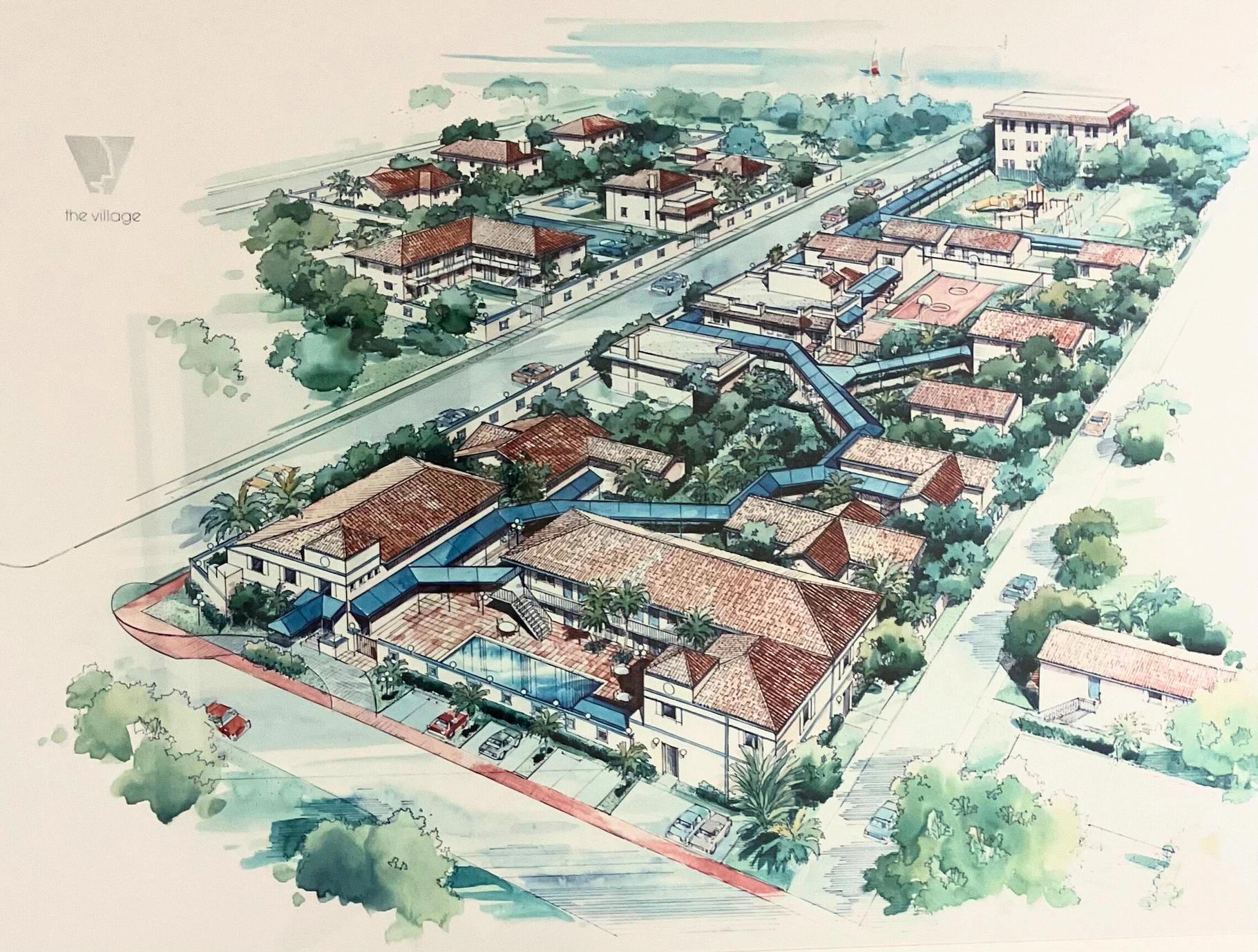
In 1992, a Substance Abuse and Mental Health Services Administration (SAMHSA) grant helped get the Families in Transition Program started The program stood as a beacon of comprehensive, residential drug prevention and treatment and served individuals suffering from substance use and their children Funded by the Florida Department of Children and Families, the program offered many types of treatment, intervention, and education, as well as vocational services that included job placement and retention skills training The program focused on parenting skills, family planning, and helping participants understand and learn how to maintain financial independence There was no limit to the number of children that families could bring with them to treatment "They were one of the first programs in the state, perhaps the country, that also provided daycare services to the children who were in treatment with their parents,” recalled Frank R bbit Chi f O ti Offi f W tC ’ Fl id
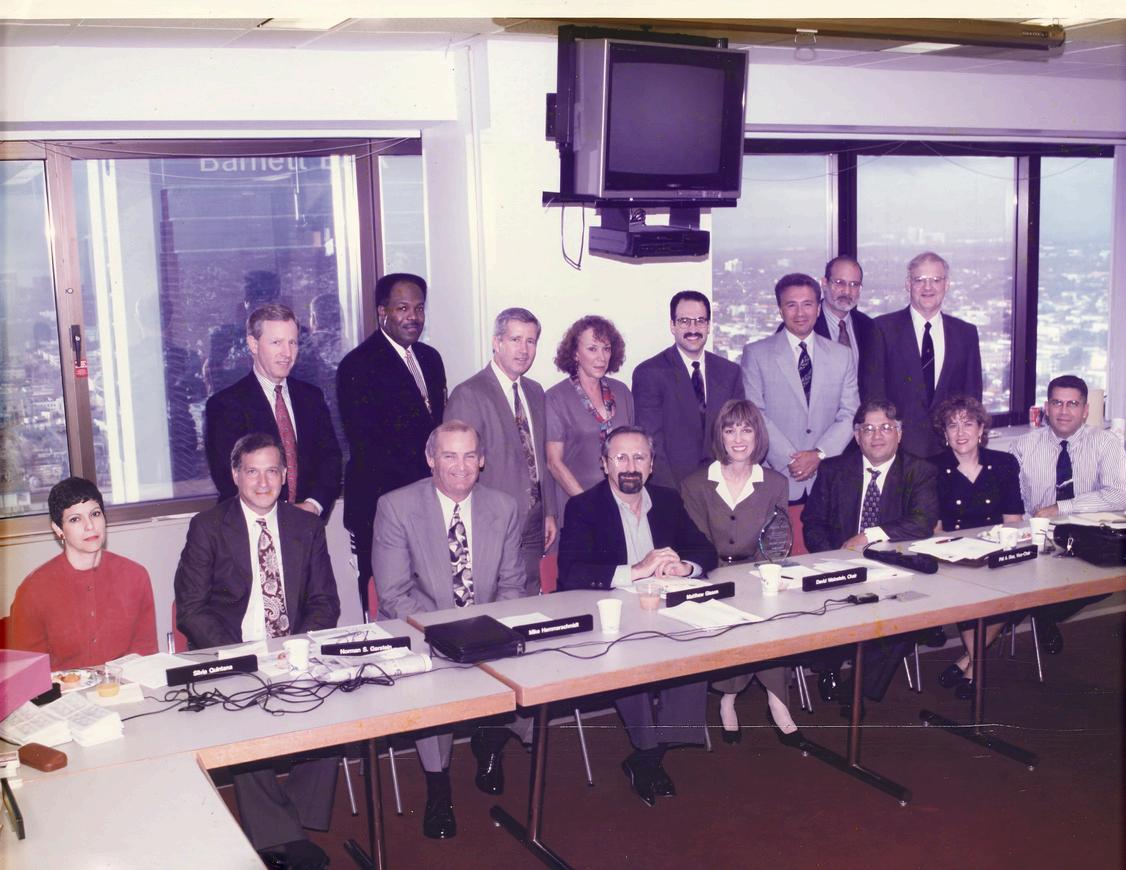
The reputation of being innovative has followed TVS as they have often led the charge when it comes to innovation in mental health and addiction treatment. In fact, in 1995, TVS pioneered the initiative to bring treatment to people who needed it most when they began in-home/on-site adolescent treatment for adolescents and families “We started the program with a small grant from the Florida Department of Children and Families,” explained Dr Frank Scafidi, Senior Scientist of Evaluation and Outcome, WestCare Foundation, “And it was very successful because it removed a lot of the barriers we saw within the adolescent population like their parents having to bring them in the middle of the day
or having to organize care for younger siblings ” As the program grew, the team at TVS soon realized the other benefits of practicing in-home care “When we were taking our services to the clients, the case managers and/or the therapists got to see what the home environment is really like,” Frank continued “And it helped our people to make the best choices for those in treatment ” These realizations paved the way for in-home/on-site care for other populations including those in need of adult outpatient services. Today, in-home/on-site care is practiced amongst many entities across WestCare.
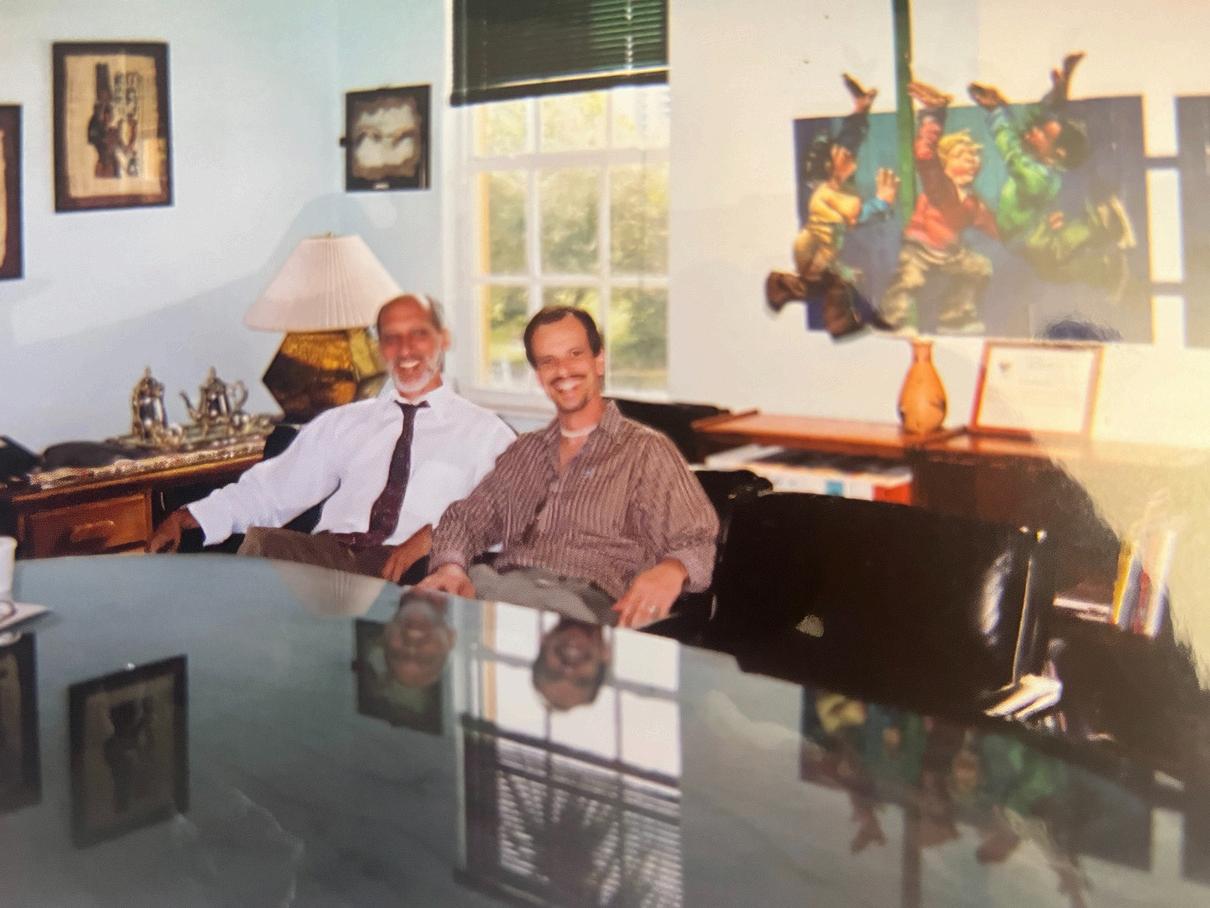
Another major initiative that began in 1995 was the residential Ryan White HIV/AIDS Program (RWHAP) With 90 beds, it stood as the largest RWHAP residential program in Miami-Dade County. The program offered integrated care for substance use disorders, mental health disorders, and HIV utilizing the evidence-based CLEAR (Choosing Life: Empowerment, Actions, Results!) curriculum CLEAR tackled a spectrum of vital elements from embracing one’s HIV status to understanding the progression of HIV, learning healthy behaviors for maintaining good health, and ensuring medication adherence, among other things Typically, clients stayed between 90 to 120 days While the residential program no longer exists, an outpatient version of the program still serves those in need and has been expanded to include both men and women affected by HIV/AIDS The RWHAP program and TVS’ subsequent efforts to support and provide hope to those affected by HIV/AIDS is a testament to their nurturing presence within their community

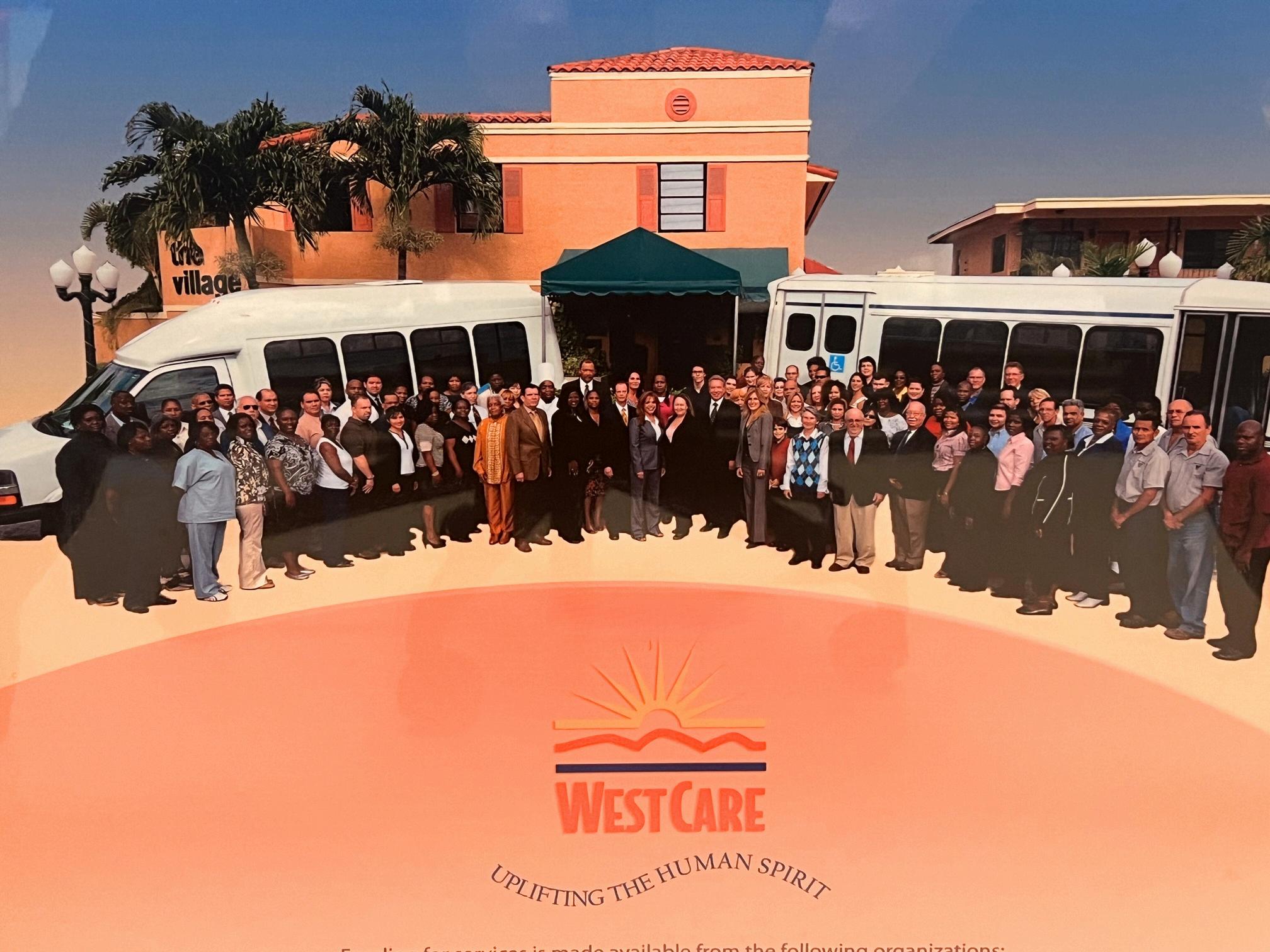
The union of The Village South with WestCare in 2003 wasn’t just a business deal - it was a collaborative effort to bring the best care to those who needed it most “WestCare brought in so many benefits,” recalled Wendy Ramos, Executive Assistant for the Florida Region, “benefits for both the employees and for the clients ” With the administrative efficacy of WestCare, TVS could channel resources more effectively toward care This strategic move would not only position TVS for potential expansion but would offer WestCare invaluable benefits in return beginning with the exceptional employees WestCare stood to inherit - renowned for their pioneering endeavors n the therapeutic community and dedication in the field
“The Village South brought to WestCare a different way about providing services than what WestCare was traditionally doing,” explained Frank Rabbito, “and that merger, I think, strengthened how WestCare operates too ”
One of the most practical services that revolutionized practices for the organization as a whole was TVS’ model of in-home/on-site care Dr Frank Scafidi recalls suggesting such care to many programs throughout his tenure of working with the Grants department at WestCare Foundation “We would be discussing barriers to care,” he said, “and I would ask if they had considered doing in-
Milestones in The Village South’s History
1984
The Village South was the first to be accredited by the Joint Commission, known then as the Accreditation of Hospitals.
The first residential therapeutic community is opened at the Old Seahorse Motel in Edgwater.
First Therapeutic Community to be licensed by the Florida Department of Health.
1995
Edgewater change from a dangerous, crime-ridden area to one of the most sought-after neighborhoods in Miami and in a lot of ways, those involved felt like they cleaned the place up Frank Rabbito remembered, “We were like a beacon of light We did a lot over the course of the years to make the area safer ”
Finding a home for a residential drug rehabilitation program is no easy feat, especially in opulent neighborhoods like those Miami-Dade County where the argument from existing residents would often echo a “not in my backyard” attitude. Upon the sale of the old Seahorse Motel in Edgewater, TVS was given three years to vacate the premises During that time, Frank Rabbito and his team searched high and low for another location to run the residential treatment center out of,
A federal grant allows for treatment of clients in-home and on-site.
Department of Children and Families Licensing. Largest residential Ryan White program is opened in Miami by The Village South.
Healthy Alternatives Require Transitions (HART) serves YMSM in Miami.
The Village South begins working with the Clinical Trials Network through the University of Miami. South Florida Provider Coalition, now known as Thriving Mind South Florida, is established.
SAMSHA Grant for treatment of Pregnant and Post Partum women is awarded to The Village South.
Families in Transition program begins.
The Village South is awarded a grant from the Department of Health and Human Services to improve the health of pregnant women, new mothers, and their children.
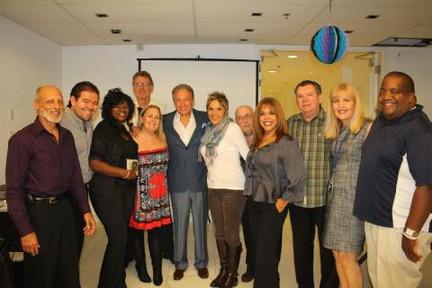
with not much luck - that is until they got a call from the Broward Behavioral Health Coalition (BBHC). The BBHC managed an entity in Pembroke Pines where the Susan B. Anthony Recovery Center had lost its contract. They asked WestCare if they could take over the existing program and they needed to do it quicklywithin three days, to be precise. “The BBHC knew we had been looking for a new location,” explained Wendy Ramos, “we had worked with them for years and we knew all the players... and this was our third administrative move, so we had a system down pat. It was a great opportunity for us to move to Broward and we were able to consolidate those counties.” The Village South’s Women and Children’s program has been functioning out of that location in Pembroke Pines ever since.
Following nearly 50 years of dedicated family-centered treatment and childcare initiatives, it was a logical evolution when Pembroke Pines Children’s Academy (PPCA) was opened in 2021. Tailored to early childhood development from infancy to pre-k, PPCA symbolizes a profound commitment to family-centric recovery. "The most important thing in this world is love and family," says Collene Brown, PPCA Administrator, "and we are here to help our families by letting them know that they are the inspiration to reach great heights." Beyond serving the children whose parents are in treatment, the academy extends its welcome to the children of community members and the children of WestCare employees. Its establishment represents a significant milestone in TVS’ commitment to family-oriented recovery.
In 2023, TVS broke ground on the Broward Community Behavioral Health Center (BCBHC). What was once a state
2006
Began using evidence-based practice of assessing and addressing trauma for substance users.
hospital will soon offer a range of behavioral health services, waiting to help guide those navigating the complex terrain of substance use and/or mental health challenges ranging in servicesfrom Crisis Stabilization Units to detox services and other vital programs.
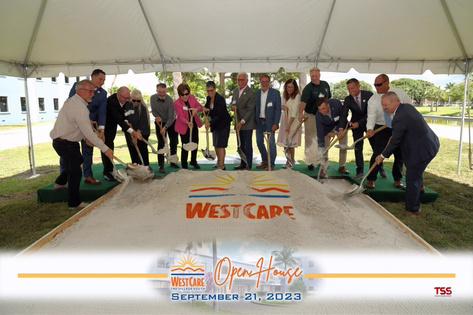
At BCBHC, a dedicated wing will house a residential Mental Health/Criminal Justice Diversion Program. Here, individuals grappling with co-occurring disorders who are also intertwined with the justice system, will find an opportunity to heal, reclaim their lives, and reintegrate into society with hope and dignity.
As TVS continues to be a guiding force for the residents and communities in both Miami-Dade and Broward counties, it is clear that its journey is far from over. Reflecting on its humble origins in a run-down district to becoming one of the leading behavioral health agencies in the state, serving over 7,000 clients a year, the benefit of TVS has never been more evident. “You know, we say here that it takes a village to create a community,” said Danny Blanco, Senior Vice President of The Village South, “and our focus will continue to center on expanding the provision of comprehensive mental health services to ensure that individuals across our community receive the vital care they need.”
Pembroke Pines Children’s Academy (PPCA) welcomes their first students in Broward County. 2021
Danny Blanco and the team at The Village South strive to continually improve their services, expanding their reach within Miami-Dade and Broward Counties. 2024
The Village South becomes a part of the WestCare family of tax-exempt nonprofit organizations.
The Village South takes over a contract previously held by the Susan B. Anthony Recovery Center, absorbing their current clients in a three-day hand over.
Mobile Response Team (MRT) hits the ground running in Broward and Miami-Dade Counties.
The Village South breaks ground on the soon-to-be Broward Community Behavioral Health Center (BCBHC).



@thevillagesouth Follow Our Journey!
The Village South, Inc
@thevillagesouth
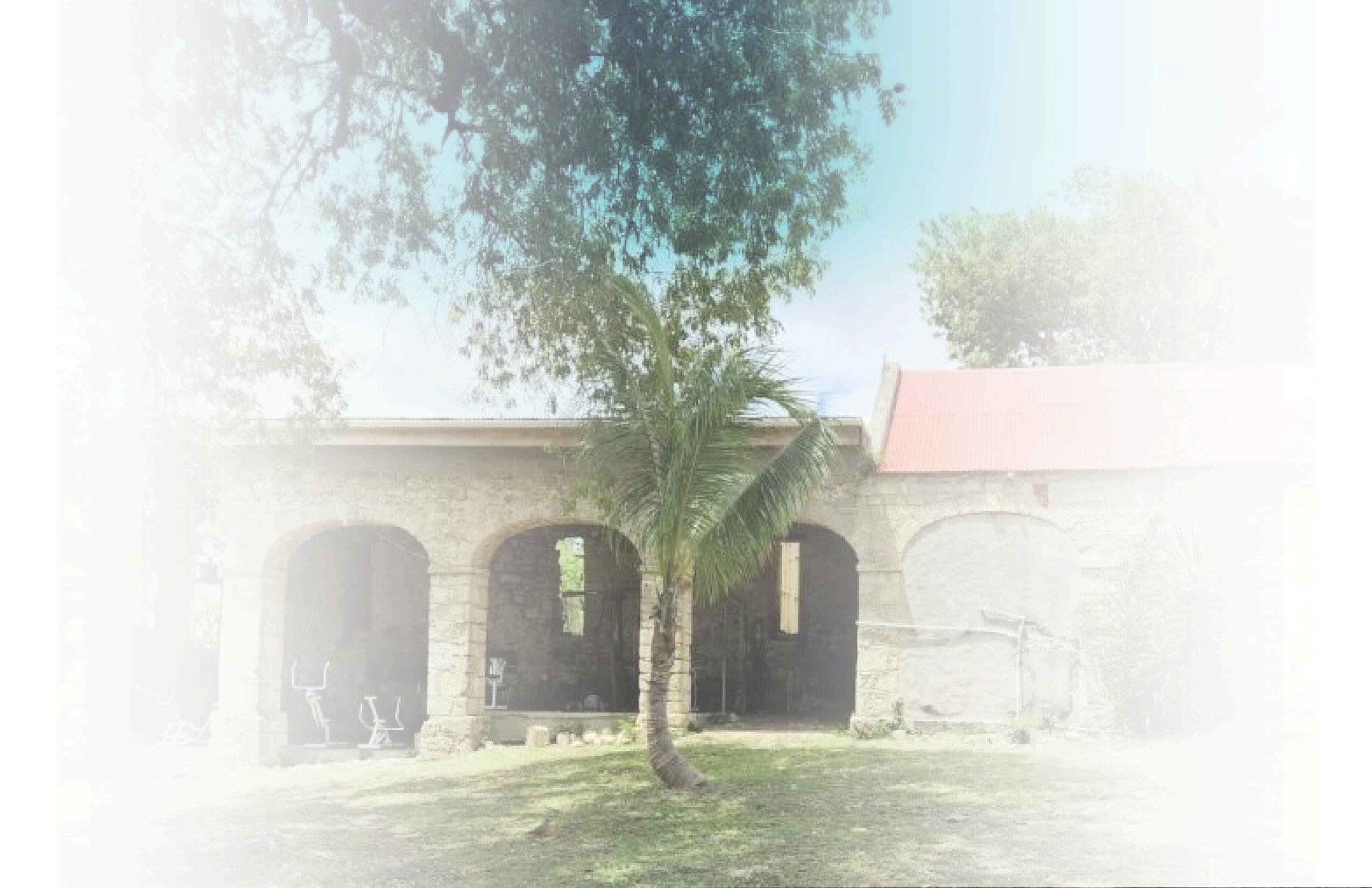

In the Fall of 1989, as the deafening roar of Hurricane Hugo’s winds began to subside, residents of St Croix, an island in the Virgin Islands, cautiously ventured out of their homes As they surveyed the devastation left in the storm’s wake, the transition from the violent onslaught of wind and rain had given way to an almost eerie calm, as if the air itself held its breath
As the dust settled and the full extent of the havoc wreaked came into focus, they stood in awe of the enormity of the task that lay before them Approximately 90% of the island’s buildings lay damaged with debris from beached vessels and upturned trees strewn across the landscape
There is something to be said of the shared bond of those who have struggled – a bond that is united by a common resilience and forged by hardship During a trip to visit the islands, Dr. Barbara Philips Carey recognized this spirit of tenacity about the population, something she herself had developed early on
In the years prior to Hurricane Hugo, Barbara was no stranger to adversity Upon graduating from high school, she found herself thrust into the challenging role of parenthood and raising a child on her own In an effort to make ends meet, she often worked more than one job She did factory work, sewed Army uniforms, waited tables, and worked on a piecework basis as a seamstress and hairdresser in her home. It was the position as a part-time teacher’s aide that inspired her to seek the higher education she had always dreamed of
She completed her B A in 1973 and never stopped pursuing education, ultimately earning her doctorate degree in her 60’s in Philosophy, Addictionology, and Counseling.
In 1987, Dr Phillips Carey found herself in Miami, working with The Village South (TVS) as a Primary Therapist and Director for Women’s Services As is common in many nonprofits, Barbara wore many hats Between working with clients, she also wrote grants. It was here that she discovered a profound sense of purpose in helping others who, like her, navigated through life's adversities, each seeking their own path to meaning and healing “She was someone who was such an advocate for the clients and the communities we serve,” remembered Denise Connor, Director of Evaluation and Quality for WestCare Foundation “She really gave of herself and was very generous with her expertise.”
Over the next couple of years, TVS forged a partnership with the U.S. Virgin Islands Department of Health (DOH), facilitating the transfer of individuals in need of treatment to Florida However, upon their return to the islands, a glaring issue emerged: the lack of ongoing support for their recovery.
Shortly after Hurricane Hugo devastated the islands, the DOH awarded TVS a proposal to open a program on St Croix and in 1990, Dr Phillips Carey and the team from TVS opened The Village Virgin Islands - Partners in Recovery (VIPIR) at a former motel complex in Smithfield
The program had a max capacity of 22 that catered specifically to males suffering from addiction When the Women and Children’s program was brought on shortly
thereafter, a quest for a larger facility began
In their search for a location with more space, the DOH recommended a property owned by the government - an old sugar plantation at a historical Dutch settlement known as Sion Hill Farm on St Croix Originally built in 1756, the historical property had a history steeped in the legacy of the Caribbean’s sugar industry having born witness to centuries of cultivation, labor, and upheaval. As she stepped onto the weathered grounds, Dr. Phillips Carey could almost hear the echoes of the past and the whispers of generations who had toiled there under the warm tropical sun The idea of transforming the premises into a haven for hope and healing fit perfectly into her philosophy of rising above adversity through perseverance Indeed, this was the ideal location to help the afflicted learn to cope and obtain the strength needed to heal
instead of running around on the street,” she said, explaining that if they were in treatment, they weren’t using in the community.
Chainie remembers that even as the number of staff at VIPIR grew, the work culture stayed very close-knit. “It’s different on an island and we did things as a family,” she said. “You will run into the clients or their families in the grocery store and we would do things together like cookouts and we were all teaching and learning from each other. The people we care for, they really did become like your family.”

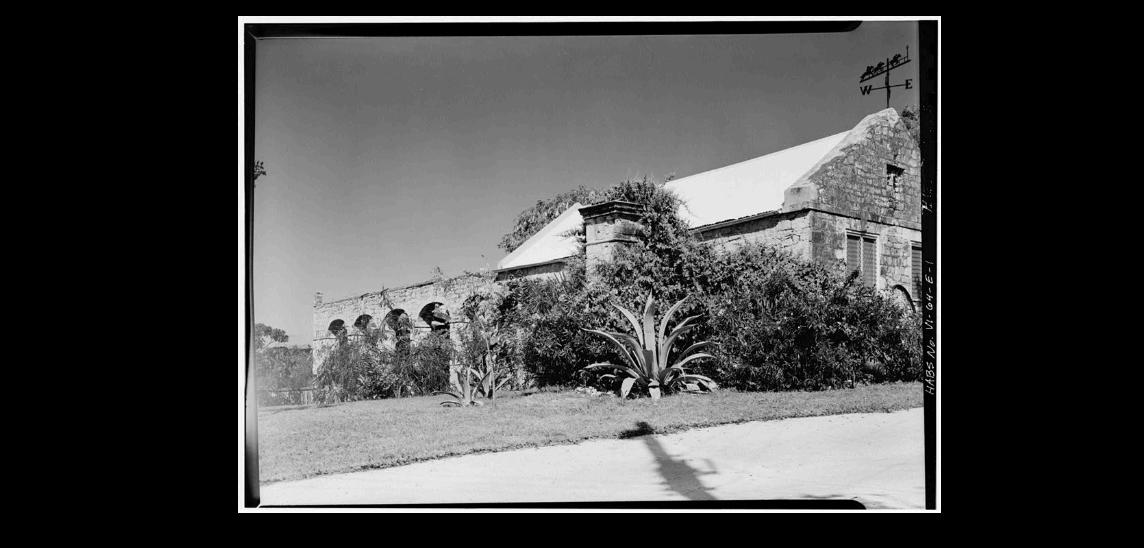
In the early days, the community surrounding Sion Farm was not happy with the idea that there was a treatment facility essentially located in their backyard Chainie Lang Brannigan, an early Community Outreach staff member of VIPIR, remembers doing outreach work to educate the population not only about their services, but the benefits of having people in treatment “The communities were better off with those caughtup in addiction being in treatment
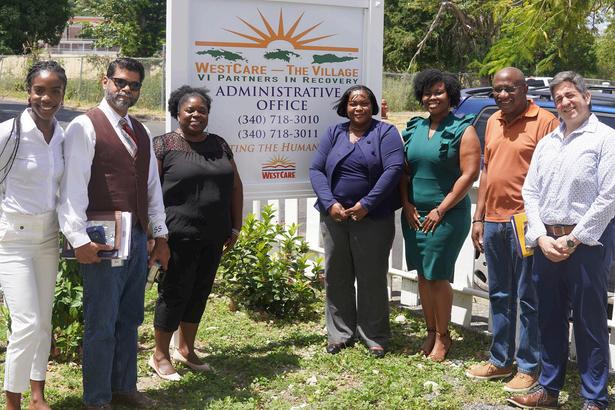
Because the idea of treatment was new in the community, the early team at VIPIR did a lot of outreach work. “No one wanted to point out specific youth and say, ‘They need help,’” recalled Chainie. “So, it was really a matter of reaching them by letting them know we were there and interacting with the kids.” They wanted to ensure that young people who were struggling had a place to go, learn, and feel both seen and heard. The unfortunate reality of childhood trauma was that it cast a shadow, even over the sun-soaked shores of paradise. “Clients often have a history of childhood trauma or abuse,” said Marsha Taylor, Vice President of VIPIR. Empowering the youth with knowledge about the dangers of substance use and equipping them with effective coping skills was paramount to fostering a resilient and healthy community.
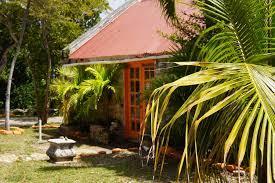
Something that Dr Philips Carey brought with her from TVS was the understanding that people who are struggling from addictions often have cooccurring disorders, many of them rooted in trauma. “We [at TVS] came to realize that many people really need trauma addressed concurrently with their substance use, not instead of and not before - it really is a concurrent model,” explained Dr. Michael Miller, Director of Special Projects, WestCare Foundation Based on the data, whole-person care fosters profound healing Such was the case for one individual who, having experienced his own trials, transformed his tragic past into a deep empathy and understanding of other’s struggles
For what seemed like the millionth time, he lit the pipe and inhaled, but something was different Moments later, Othnell Gumbs found himself writhing in pain on the floor of his bathroom - gripped by the torment of his past, alone and scared The last 40 years had brought constant struggle as he wrestled with a nefarious addiction that cost him everything In the midst of his suffering, it was as though “God came to the scene,” he remembered, “and here I was, sweating and curled up in the fetal position, stuck between the wall and the toilet... and I realized, this has got to be it. I couldn’t ever do this again, but I knew something had to be different on my end this time ”
Othnell practiced the strategies he learned at The Village and turned his life around He stayed in touch with his therapist, Marsha Taylor, and strived to do better “Even through my addiction, I never gave up hope that I would be able to get clean I knew it was gearing me up to make this ultimate change one day” and so it was Othnell succeeded and built a life for himself Three years later, his phone rang “When Marsha called me and told me there was an open position, I jumped on it because I knew this was a way to use my experiences to help others.”
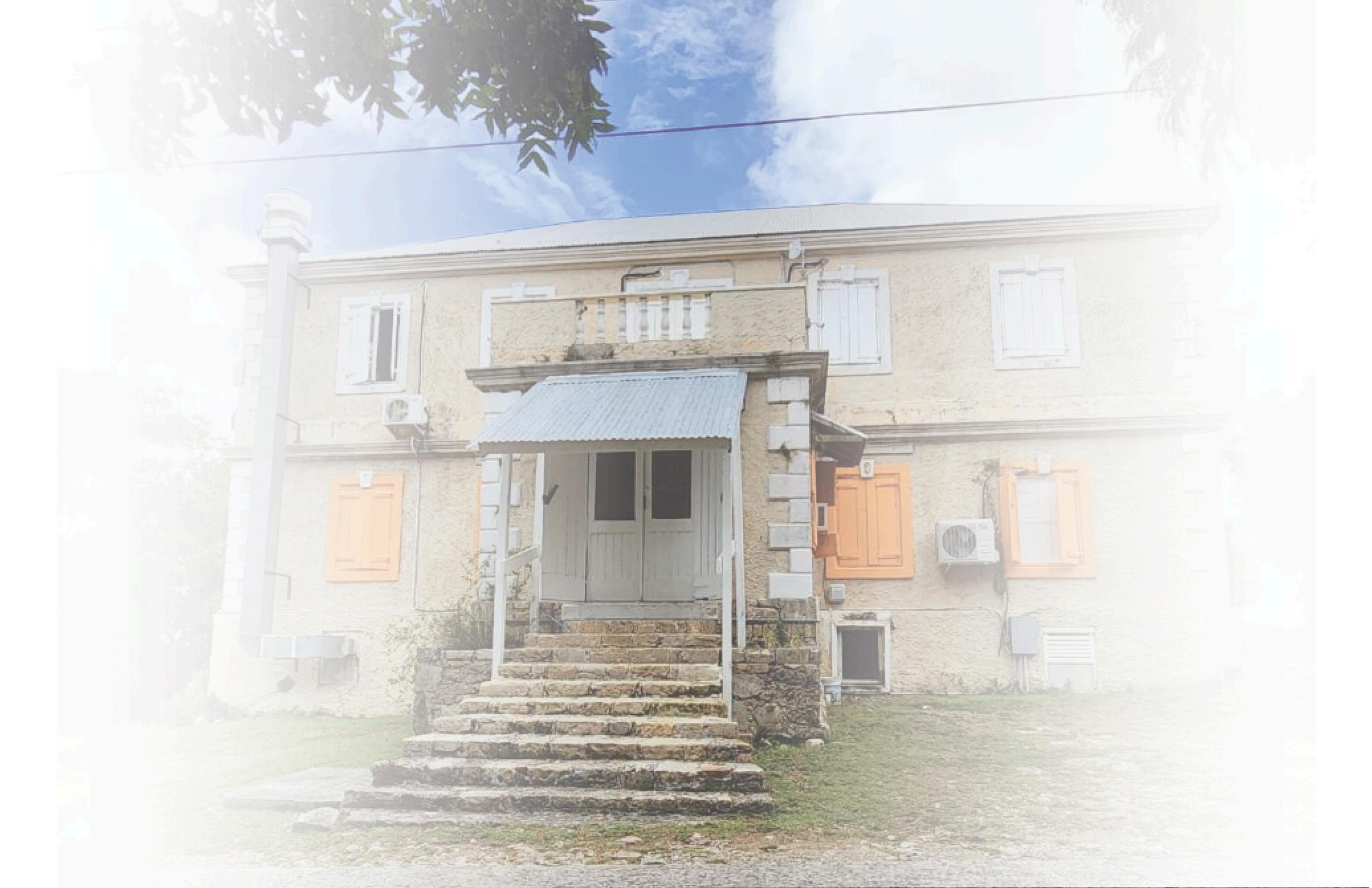
When Othnell came to the interview, Larry McArthur was running VIPIR. “I sat in on his interview,” recalled Marsha Taylor. She had an incredible amount of faith in Othnell and wanted him to feel as comfortable as possible. “After the interview, Larry expressed that there was just something about Othnell’s raw authenticity. He said, ‘That’s the type of person we need working with us because it comes from the heart’ and you know, his story shines a light and gives hope to others. Recovery is possible for anyone.” Today, Othnell works as a Peer Care Coordinator, leveraging his personal journey to offer support and guidance to those navigating the dark waters of addiction and striving for recovery.
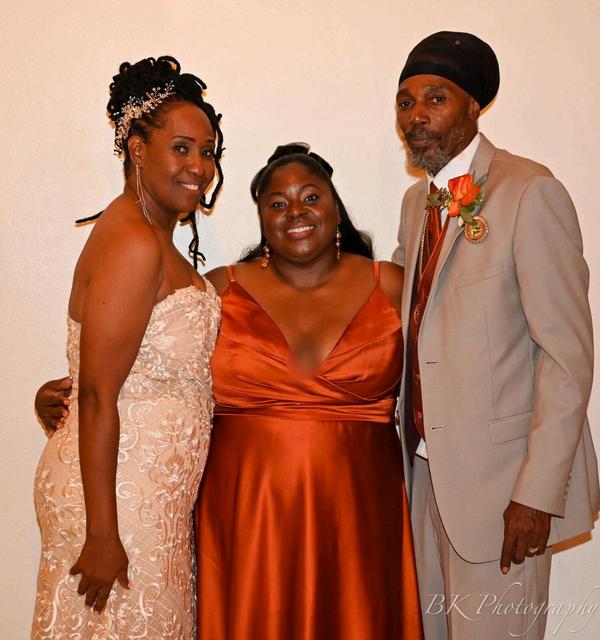
In 2003 when WestCare took TVS under its umbrella of care, The Village also became a WestCare entity. Like other WestCare operations across the globe, the people at VIPIR continually strive to adapt to meet the needs of the communities they serve. One such example of this is how their outpatient program came to be.
For decades, an oil refinery has operated on the island of St. Croix. In 2015, when a new company succeeded in the purchase of the refinery, the influx of workers brought with them different drugs from the mainland including fentanyl and opioids. In addition to novel drugs, the need for a new type of treatment came too.
Milestones in The Village VI - Partners In Recovery’s History
Shortly after Hurricane Hugo devastated the Virgin Islands, the Department of Health awarded The Village South a proposal to open a program.
With the expansion of the program to include women and their children, the team at VIPIR needed more space and moved to the old sugar plantation at Sion Hill Farm.
Dr. Phillips Carey and her team open up the first residential treatment center in the old Smithfield Motel in Smithfield on St. Croix.
Upon receiving a SAMHSA grant to fund a substance abuse treatment and rehabilitation program, VIPIR expands services.
Marsha Taylor comes to work as a therapist at VIPIR.
When WestCare took The Village South under its umbrella of care, The Village - VI Partners In Recovery no longer operating as a program, but a full-fledged entity.
The lifestyle of refinery workers did not allow for an inpatient style program. “Employers were reaching out to us heavily with the need for a program to send their employees to, but they couldn’t do inpatient,” recalled Marsha Taylor. “So, we started our outpatient program because of that, and employers continued to reach out to us when they have employees that need to do the outpatient program.”

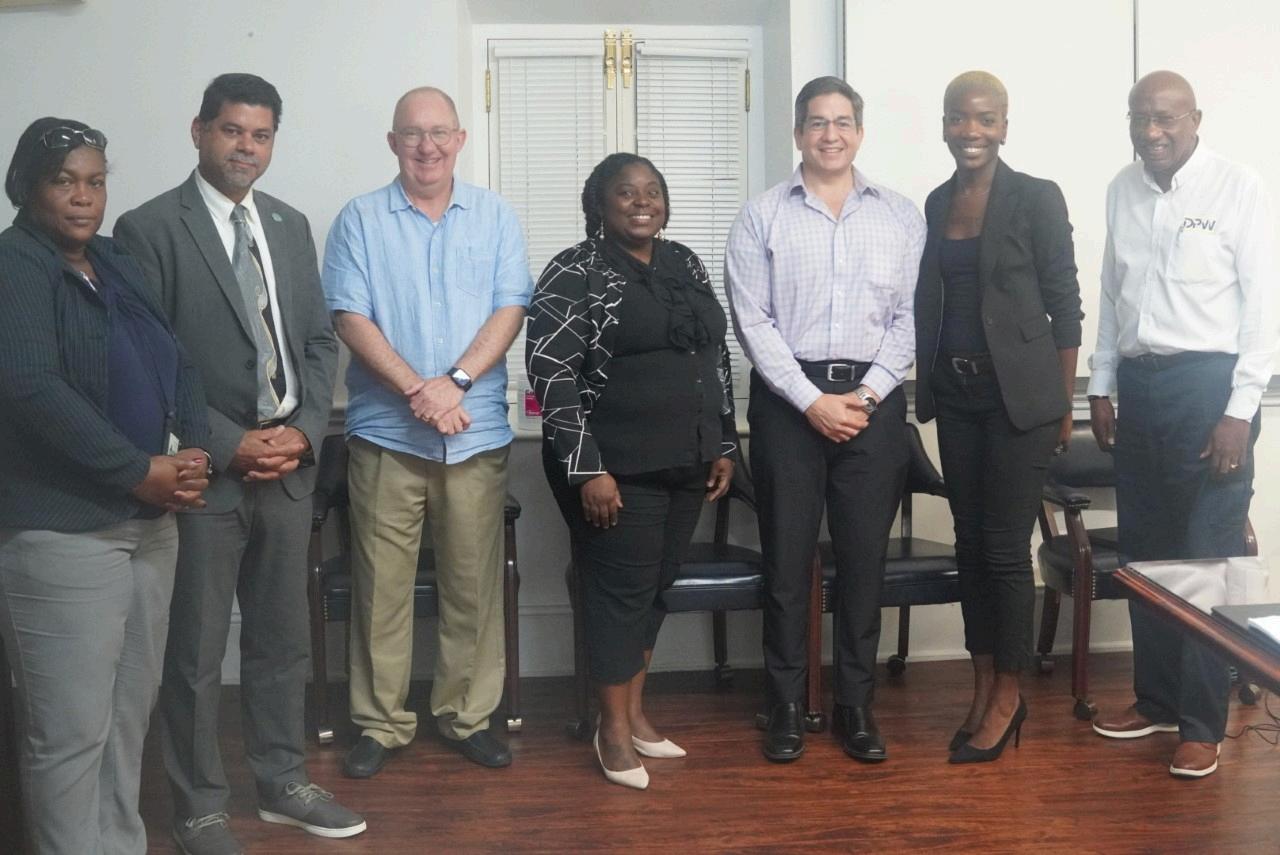
In 2022, Dr. Barbara Phillips Carey passed away surrounded by her family in Miami. The legacy she left reverberates across the Virgin Islands, throughout WestCare, and deep within the hearts of the people she served and worked with. As we reflect on the journey of VIPIR thus far, the path toward a bright future is paved with the lessons we have learned along the way.
As a result of all that they have been through on the island, the team in the Virgin Islands will continue to adapt. Marsha Taylor has her sights set on growth in the years to come. “Currently, we are working on expansion. Right now, we are known as substance use treatment, but we have really broken that mold and ventured into prevention programs. We are working to fill the voids in our community and endeavor to address issues here on our island pertaining to homelessness,” she explains. “A few years ago,
Added prevention services for Youth & Adolescents as well and Transitional Adults.
When workers from the oil refinery were in need of treatment but could not become inpatient, VIPIR opened up their first outpatient program.
we had two back-to-back category five hurricanes and as a result, there are people still living in homes without roofs. We want to address these issues.” Marsha also imagines having more visible services on the neighboring island of St. Thomas. “We have three staff who do prevention services with adolescents on St. Thomas, but we want it to be much bigger. I see a substance use treatment center over there so that people don’t have to leave their home to go to treatment.”
The journey of resilience and transformation on the island of St. Croix is far from over, and the example set by the determination and will to thrive of its inhabitants serves as a profound source of inspiration and hope for the future. The legacy of resilience and compassion instilled by Dr. Barbara Phillips Carey's vision continues to guide The Village Virgin Islands - Partners in Recovery as a beacon of hope for those navigating through a sea of uncertainty... and the staff at VIPIR continue to tell them, “Don’t give up until the miracle happens.”
Marsha Taylor and her dedicated team at VIPIR strive to bring the communities on the islands of St. Croix, St. Thomas and St. John the services they need.
Intervention services for Youth & Adolescents and Transitional Adults.

A QUICK LOOK AT OTHER HAPPENINGS THROUGHOUT OUR WESTCARE FAMILY
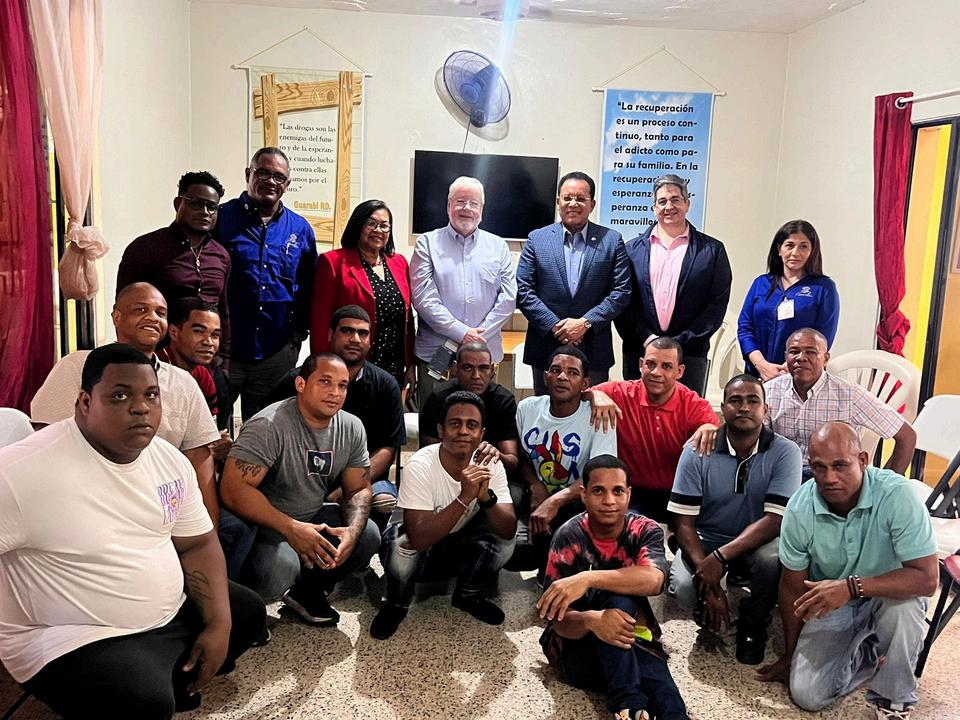
In March, we had the privilege of hosting a visit from WestCare President, Mr. Richard Steinberg and his family. He visited the Caribbean region (Puerto Rico, The Virgin Islands, and the Dominican Republic). During his time with us, Mr. Steinberg actively engaged in the Puerto Rico, Dominican Republic, and Virgin Islands Community Action Council (CAC) meetings, where he had the opportunity to learn about the community work that is being carried out in the Caribbean. He also met with the chairs of the CACs, including the former rector of the Technology University of Santiago, Ms. Maria Elena Cruz Batista (Dominican Republic CAC), Ms. Lymaris Rodriguez (former chair, Puerto Rico CAC), and Dr. Carlos Rodriguez Mateo (new chair of Puerto Rico CAC)of Puerto Rico CAC) along with key government officials like the Director of the Ministry of Drugs of the Dominican Republic, General Marte Martínez, who expressed strong support for our endeavors in the Dominican Republic.
These interactions fostered stronger connections and collaboration aimed at enhancing the continuity and expansion of our services in these countries. Both our dedicated staff and clients had the opportunity to engage with Mr. Steinberg, providing firsthand insights into the impactful community work unfolding across the Caribbean.
The seminar on the Early Attention System took place on March 20 and 21, 2024, at the Crowne Plaza Hotel in Santo Domingo Organized by the Observatory of the National Drug Council and sponsored by the Canadian Embassy, this event was part of a series held across various countries in Latin America and the Caribbean. Guara Bi - Dominican Republic was specifically chosen as a site visit for participants to observe as an ideal rehabilitation facility, showcasing its operational dynamics and treatment methodologies. Approximately 30 individuals representing an array of different institutions attended the seminar and many of them expressed their commitment to providing support to Guara Bi - Dominican Republic.
 Guara Bi
Guara Bi

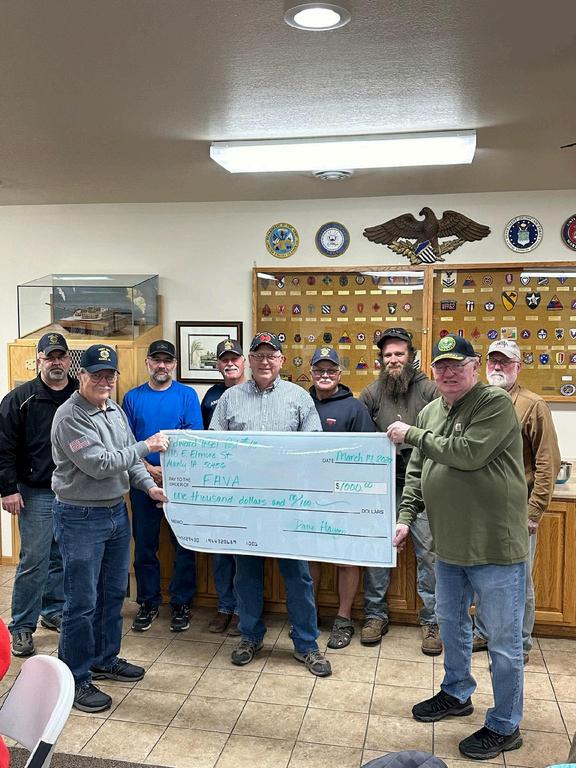
grocery shopping and to help with the immediate emergency needs of the Veterans and their families that we serve. Jon Hanni, WestCare Iowa FAVA staff, was present to accept the generous donations. The four checks that came from this post were from different groups including The Legion Post #110, The American Legion Lady’s Auxiliary, Legion Post #110 Motorcycle Riders Club and Sons of The American Legion
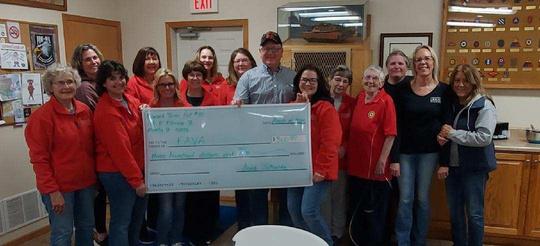
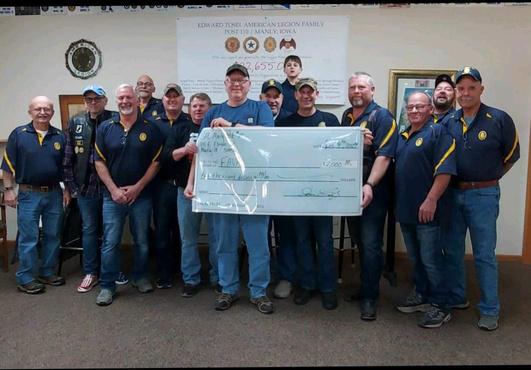


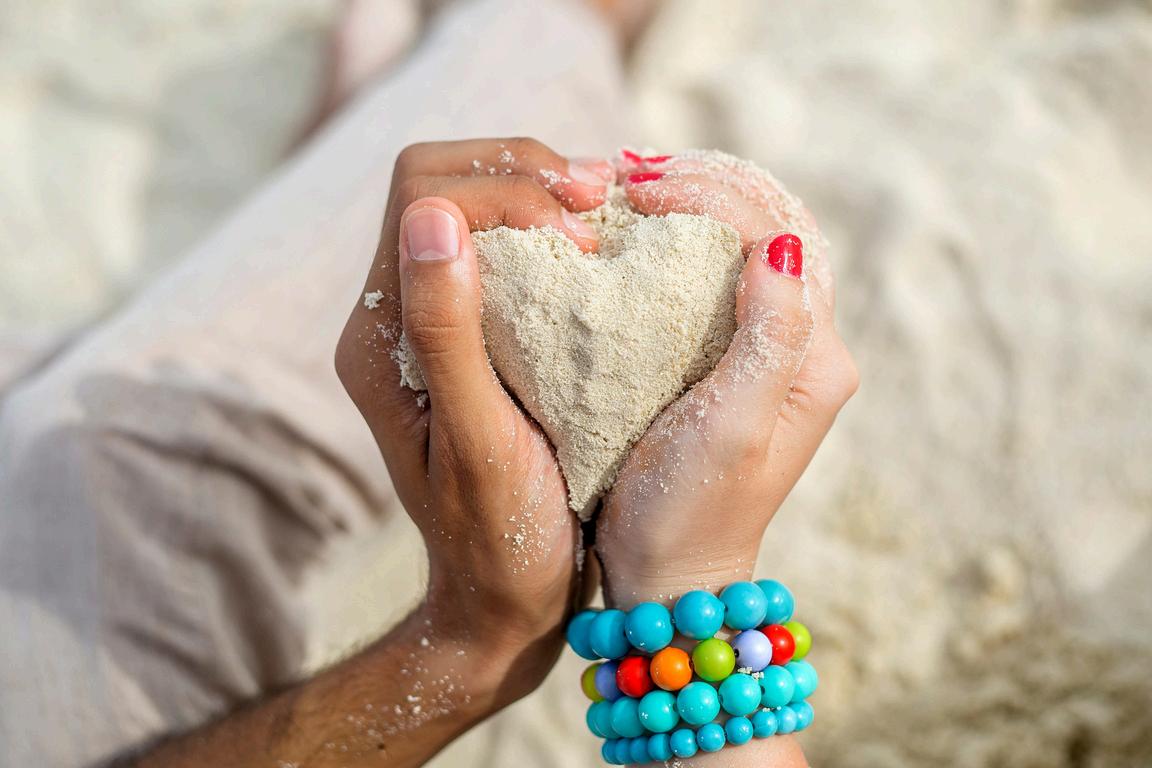
During March, Cheberdil Belau Center’s (CBC) Tabesul Deleuill or “Equal Relationship” Program hosted an unforgettable journey to love and growth as five dynamic couples participated in our Prevention and Relationship Education Program (PREP) 8.0 During 12 engaging sessions, participants were immersed in discussions and activities aimed at nurturing healthy relationships and fostering deeper connections with their partners.
Over the course of a week and a half, couples delved into two enriching sessions every evening. Their commitment to the program was evident as they absorbed valuable lessons and insights, gaining a deeper understanding of both themselves and their partners. Among the most enjoyed topics were Personalities, where couples discovered their unique personalities fostering an insightful appreciation for each other. Additionally, Fun and Friendships brought laughter and joy as they explored ways to keep their relationships lighthearted and enjoyable. Lastly, Expectations and Love Styles were also hot topics, sparking meaningful discussion and helping couples to align their values and goals for a more fulfilling partnership.
As the program ended, it was clear that bonds between the couples had been strengthened and their relationships blossomed in ways they never imagined. CBC takes pride in providing a space for couples to share in this transformative experience and we look forward to supporting couples in cultivating healthy and fulfilling relationships in Palau. Here’s to love, laughter, and lifelong learning!
In celebration of 50 years of Uplifting the Human Spirit, The Express is embarking on a journey through time. Over the next year, we will feature the origin stories of two entities every month, tracing our history in chronological order. Each entity will be informed when it's their time to shine, but it never hurts to start investigating your origin story now! We welcome pictures and anecdotes from throughout the years, as we delve into the fascinating narratives that have shaped WestCare. Join us on this extraordinary odyssey of discovery and inspiration.
Our commitment to showcasing the incredible work that makes WestCare a beacon of healing and support in our communities remains steadfast. While we are featuring the history of WestCare, we will continue to feature highlights from the remarkable journeys of individuals and groups who inspire us all. We urge you to continue to submit your stories of success, education, prevention, and healing to marketing@westcare.com. Your narratives fuel hope and contribute to our collective mission of Uplifting the Human Spirit.
